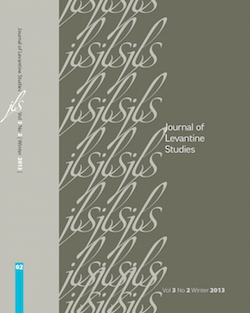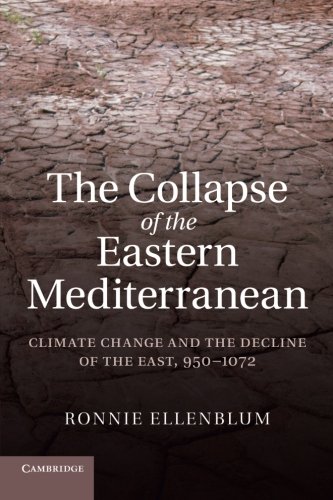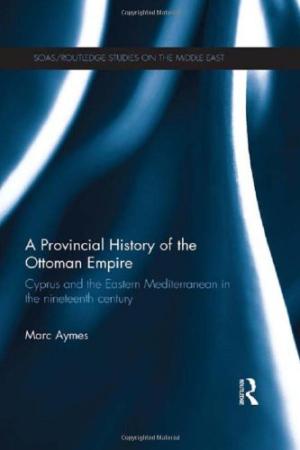-
Add to cartQuick view
James Bryce’s Blue Book as Evidence
Investigations of the Armenian Genocide began as soon as news of the mass killings reached Great Britain in May 1915. The 1916 publication in Britain of The Treatment of the Armenians in the Ottoman Empire as a Parliamentary Blue Book by Viscount James Bryce provided compelling and verifiable evidence of the systematic elimination of the Armenian population of the Ottoman Empire. Today the Blue Book is largely forgotten as a documentary and historical source on the massacres. This article situates the Blue Book in its historical context, arguing that its publication provided the foundation for the evidentiary standard by which the act of genocide is corroborated and judged by the international community. The uses and abuses of the Blue Book at the time by the British government and the humanitarian movement in making the case for genocide reveal the problematic legacy of the first efforts to catalog and document what the Allies labeled during World War I as “crimes against humanity.”
$5.00Free!Add to cartQuick view -
Add to cartQuick view
James Bryce and the Origins of the Armenian Question
Free!James Bryce's association with Armenia became well known from his, and Arnold Toynbee's, famous Blue Book on the Armenian Genocide (1916). However, only a handful of studies have been published about Bryce's life-long, and especially about his “early,” Armenian engagements. As this article aims to show, his Armenian mission from the 1870s until the massacres of 1894–1896 deserves greater attention. In these years Bryce attempted to stir up awareness of the suffering of the Armenian communities in the Ottoman Empire. These efforts were mainly aimed toward the internal British scene. Some followed Bryce's lead and supported his Armenian cause, while others doubted his reports and regarded them as “exaggerations.” Bryce's comprehension of the Armenian Question resulted from his general assessment of the power struggle between the major European powers. This struggle has in recent years become, as seen for instance in Donald Bloxham's book The Great Game of Genocide (2005), a central theme in the study of the Armenian Question. In the context of this power struggle, especially between Britain and Russia, Bryce had, quite uniquely, grasped the ominous potential of the Armenian Question by the end of the 1870s. As elaborated in the article, despite Bryce's firm position about the urgent need to intervene in Armenia, there was an almost unbridgeable gap during these years between his moral or ideological stance and the actual abilities of the British government. In short, a breach existed between Bryce's compulsion and Britain's realpolitik constraints.
Add to cartQuick view -
Add to cartQuick view
The Meaning of “Tolerance,” Which Is the Basis of Modern Civilization
Free!The following translation is a selection from the debate that occurred in 1902 and 1903 between Muhammad ʿAbdu (1849–1905) and Farah Antun (1874–1922), an Ottoman Orthodox Christian intellectual who emigrated from Tripoli to Egypt. The translated section focuses on the question of tolerance and illustrates both the advent of the liberal concept of tolerance in the Arab-Ottoman intellectual sphere and the reception of its ideational content.
Add to cartQuick view -
Add to cartQuick view
Ronnie Ellenblum. The Collapse of the Eastern Mediterranean: Climate Change and the Decline of the East, 950-1072. Cambridge: Cambridge University Press, 2012. 270 pp.
Ronnie Ellenblum. The Collapse of the Eastern Mediterranean: Climate Change and the Decline of the East, 950-1072. Cambridge: Cambridge University Press, 2012. 270 pp.
$5.00Free!Add to cartQuick view -
Add to cartQuick view
Elizabeth F. Thompson. Justice Interrupted: The Struggle for Constitutional Government in the Middle East. Cambridge, MA: Harvard University Press, 2013. 432 pp.
Elizabeth F. Thompson. Justice Interrupted: The Struggle for Constitutional Government in the Middle East. Cambridge, MA: Harvard University Press, 2013. 432 pp.
$5.00Free!Add to cartQuick view -
Add to cartQuick view
Marc Aymes. A Provincial History of the Ottoman Empire: Cyprus and the Eastern Mediterranean in the Nineteenth Century. Oxon: Routledge, 2013. 240 pp.
Marc Aymes. A Provincial History of the Ottoman Empire: Cyprus and the Eastern Mediterranean in the Nineteenth Century. Oxon: Routledge, 2013. 240 pp.
$5.00Free!Add to cartQuick view -
Add to cartQuick view
Julia Phillips Cohen Becoming Ottomans: Sephardi Jews and Imperial Citizenship in the Modern Era Oxford: Oxford University Press, 2014. 219 pp.
Julia Phillips Cohen Becoming Ottomans: Sephardi Jews and Imperial Citizenship in the Modern Era Oxford: Oxford University Press, 2014. 219 pp.
$5.00Free!Add to cartQuick view -
Add to cartQuick view
Of Vines, Fig Trees and the Ashes of Bigotry
Free!In 1790 the head of the Jewish Congregation of Newport, Rhode Island, approached George Washington, the first president of the new United States, leading to an exchange of letters between Moses Seixas (1744–1809), warden of the Newport Community, and Washington. This essay begins with an analysis of the biblical context of the exchange between the two, which provided the background for Washington’s beautiful statement on the freedoms that an exilic minority people could hope for. In his reply to Seixas, Washington invoked the powerful biblical image of the vine and the fig tree in his words of assurance to the Jewish community. Reconstructing this context helps to clarify questions regarding the boundaries within which such a people can operate as a distinct group. I show that the original context within which the phrase about a vine and fig tree is expressed was in effect a contract between the sovereign and the ruled.
Later in this essay, I turn to an instance of a new sovereign breaking his promise right after assuming power. Having received assurances of religious tolerance from Isabella I of Castile and Ferdinand II of Aragon, King Boabdil, the last sultan of the kingdom of Granada, surrendered to the Reyes Católicos. This understanding, however, did not last.
Against the backdrop of the Spanish Inquisition that ensued, I discuss the theme of book burning through history. Such events, I argue, present the exact opposite of what Washington argued for in his letter: they highlight the connection between religious intolerance and violence. Reflecting on book burnings gives us an opportunity to explore the processes of the destruction of one culture and the creation of a new one on its ruins.Add to cartQuick view -
Add to cartQuick view
The Iraqi Novel and the Christians of Iraq
Free!After the toppling of Saddam Hussein’s authoritarian regime in 2003, the Christian communities of Iraq faced forced emigration. In this article I examine how the Christians of Iraq and their recent precarious situation are reflected in the Iraqi novel. First, I set the political and conceptual grounds with an exposition of the debate over the place of Christians in the Iraqi nation, as discussed by two Iraqi intellectuals belonging to the Sunni and Shi‘i Muslim traditions. This debate frames the liberal political discourse on the Christians and thus provides a framework for the analysis of the novels, the main focus of the article. Iraqi novelists are less refined than intellectuals and politicians in their exposition of views about Christians, or in the case of Christian novelists, their views of their own community and of Iraqi Muslims. I examine representations of Christians in novels written by both Muslim and Christian Iraqi writers, as well as how novels by Christian Iraqi writers reflect the controversy they live with and the crisis of their identity vis à vis their community and its current place in Iraq. What emerges is that increasing numbers of Christians question both their alliance with the Arabs in Iraq and, even more so, their Arab identity. For various reasons Arab Muslim intellectuals find this difficult to accept.
Add to cartQuick view -
Add to cartQuick view
Islamic Legal Hybridity and Patriarchal Liberalism in the Shari’a Courts in Israel
The civil judicial family law system and the shari‘a courts in Israel are a fascinating site for the study of legal hybridity, particularly with regard to cases involving the legal and religious rights of women. Legal hybridity is found both in the shari‘a courts, even when ruling on cases that are under their exclusive jurisdiction, and in the family courts that apply provisions of Islamic and Israeli law. In this article, I examine as a case study of the problem of appointing a woman as arbitrator between quarelling spouses in the shari‘a court arbitration process. This example shows how a shari‘a court operates under pressure from the secular civil judicial system. It is discernible how a system of legal hybridity gives rise to multiple discourses deriving from different normative systems and various players—such as human rights organizations, Islamic feminist movements, secular feminist movements, and the Israel Supreme Court—seeking to navigate the discourse in pursuit of their interests. My central thesis is that this system of legal hybridity is enhancing a patriarchal liberalism that is filled with obstacles and hurdles preventing full equality.
$5.00Free!Add to cartQuick view
- Home
- About JLS
- Issues
- Vol. 9 No. 1 | Summer 2019
- Vol 8 No 2 Winter 2018
- Vol. 8, No. 1: Summer 2018
- Vol. 7, No. 2: Winter 2017
- Vol. 7, 1: Summer 2017
- Vol. 6, Summer/Winter 2016
- Vol. 5, No. 2 Winter 2015
- Vol. 5, No. 1 Summer 2015
- Vol. 4, No. 2 Winter 2014
- Vol. 4, No. 1 Summer 2014
- Vol. 3, No. 2 Winter 2013
- Vol. 3, No. 1 Summer 2013
- Vol. 2, No. 2 Winter 2012
- Vol. 2, No. 1 Summer 2012
- Vol. 1, No. 2 Winter 2011
- Vol. 1, No. 1 Summer 2011
- Blog
- dock-uments
- Subscribe
- Submit
- Contact





